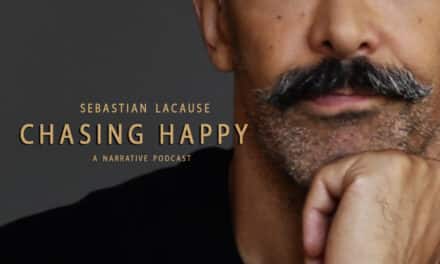GRAHAM STREETER
ARTWORKS TALKS

During this COVID-19 downtime I, like many, also find myself watching the old classic TV shows and films from the past. But just when I’m deep in the “suspension of belief”, I am suddenly jarred away from the story by a seemingly random situation; my COVID red flag alarm goes off. I see that grocery line. I see someone walking toward my main character without a mask on! I panic as someone casually picking up a package with no concerns. In that moment, I disconnect, I say to myself “it is just a story”, but it’s too late.
The seemingly perfect scene in the movie or TV show that played out perfectly for decades now flops for me. What’s worse, the critical and once seemingly invisible cinematic plot points essential in moving the film’s plot forward have been negated by undeniable distractions.
During this COVID-19 time, my instinct has been to utilize the down time by being productive developing new screenplays. As a work-around, my initial thought was that I should avoid these type of scenes at all costs. But a deeper look into what the new world looks like amidst covid kept me questioning every turn and every seemingly “normal” scenario.
But I felt overwhelmed not knowing where to draw the line. A little voice in the back of my head kept asking how long will this COVID-19 last? How much will an audience buy into a story before they are also distracted? Should I conjure up assumptions of what this new COVID-19 world will look like, or should I continue writing as “usual” and wait for things to return to normal?
What if, despite the president’s assurance “This Coronavirus will just miraculously go way”, the initial twelve cases of COVID-19 in the United States were to spread to five million cases? What if masks suddenly became mandatory in public? What if we had to shut down major cities, stop international travel? What if 13 million people lost jobs and the urban landscape became riddled with homeless encampments?
Oh wait. That is already happening!
Take it a step further. What if a vast portion of the population was weary of a vaccine so the virus perpetuated over the next 2 years, almost doubling today’s current COVID-19 cases? What would a once flourishing America look like then? What about our food supply chain? What would working remotely look like? What about new laws? Mental illness? Waste in our oceans from masks and personal protective gear? How might the wealthy leverage medical care over the poor? How would conventional politics play out?
I mention a two year window because that’s a reasonable timeframe in which you might green light a screenplay, shoot, edit and release a finished film; a film that may ultimately appear irrelevant, unrealistic, unbelievable, or worse yet, undesirable. Will the scenes and scenarios within this non-science fiction, non fantasy story hold water? Will we even want to go down that road and see more tragedy? Might just a few unbelievable moments ruin everything you worked for in the end? And the big question, why are you even telling this story? Isn’t the world full of enough crap?
No matter how you slice it, this is a moment in time that will go down in history. It is a significant moment for mankind. It is, in many ways, a profoundly common denominator that brings the world together as one. Like war movies, stories of the holocaust, and known natural disaster, rarely is there a life-changing experience that everyone can relate to. In screenwriting, we rely on universal reference points to make a story relatable to the largest audience possible. COVID-19, sadly can and will be a reference point as well.
And within this global experience, is the simple notion of humanity. To be human during this challenging moment in history; to prevail and shine as the best we can be during these trying times.
My goal, as with all my films, is to illuminate the human condition. To ground an audience in a believable scenario and witness situations they can connect with; to take the situation and learn from it, grow from it, and ultimately walk away from the narrative a better, stronger, wiser human being.
As a screenwriter, my narrative must be fully believable. It must hold water at all moments. It cannot have distractions or unrealistic scenarios that may pull out of the moment. My characters are not super heroes. They feel pain. They seek love. My job is to write a narrative that is plausible, so we can get beyond the scenario and allow the audience to feel that long needed hug or that painful little ingrown hair, all the while rooting for the main character to successfully navigate through a universal challenge. Maybe it is a moment in time that reflects the reality of this new COVID-19 world.
All that being said, there is the unknown for both studio and indie filmmakers alike about how production will take place in a responsible and safe fashion amidst of COVID-19 parameters. Story-wise, it already seems like a given that scenes with large crowds and excessive cast members will be less effective than smaller ensemble scenarios.
As for production crews, lean and flexible teams that wear multiple hats might be an advantage. But for now, gathering large groups of people together to tell a story seems non-essential. I, personally, am not willing to risk my cast and crew for the sake of creating fictitious content. There is plenty of great content on the shelves that can keep us occupied until it’s safer to congregate for production.
So, to answer your question, COVID-19 has definitely put a wrench in my indie filmmaking momentum. I feel this is not the time to be filming, but that being said, it’s definitely a time to be developing new ideas. Responsible citizens must wait for the green light. In the mean time, I hope more people find a love for indie films. Maybe that will be the silver lining?
And yes. I wish my style was less drama, and more like science fiction stories or period pieces. Or even musicals or comedies.
These COVID-19 times make it challenging to define a world in which I can tell my stories. Assuming “Normal” has forever changed, crafting a narrative in a universe I cannot quite visualize yet is my greatest obstacle.
But I persist, as artist do.”
Learn more about Graham Streeter and Imperative Pictures. Visit imperativepictures.com
LINK: https://vimeo.com/ondemand/imayregret










